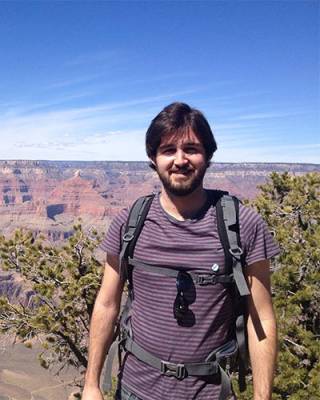“Throwing light on hominin origins and their evolutionary history”
PhD project title:
The early evolution and distribution of Hominini (order Primates) and the quality of their fossil record.
 Project description:
Project description:

The tribe Hominini (a member of which is termed a hominin) comprises modern humans and all fossil taxa that are more closely related to modern humans than to chimpanzees – our closest extant relative. Molecular clock studies estimate this group diverged during the late Miocene and fossil evidence reveals a complex history of mosaic evolution and faunal turnover thereafter. They represented a morphologically and ecologically diverse group throughout the Plio-Pleistocene and their evolution includes the transition to obligate bipedalism, reduced sexual dimorphism, increased carnivory, grossly enlarged brains and tool manufacture and use – all highly derived adaptations within the family Hominidae (great apes). However, their fossil record is notoriously poor, particularly during their estimated time of origin, and most research on macroevolutionary pattern and process involves a literal interpretation of the fossil record.
My research provides a detailed examination of the early evolution and biogeography of Hominini and the quality of their fossil record. This includes an assessment of species richness; fossil record completeness; potential sources of bias; the merit of current phylogenies; and biogeographic history. My project also combines the use of stable isotope analyses of fossil carnivore enamel from key hominin localities to infer the time scales over which hominin fossil assemblages accumulate and the degree to which they are time averaged.
Before embarking upon a PhD degree in Hominin Palaeobiology through The London NERC DTP, Simon received a BSc degree in Earth Sciences from the University of East Anglia in 2009 and in 2014, earned a distinction for his MSc degree in Hominin Palaeobiology from the University of Liverpool.
 Close
Close

